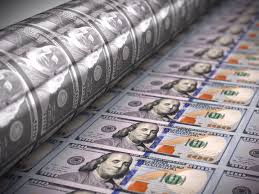
Breaking News
 Why Do We Have a Paper-Money System?
Why Do We Have a Paper-Money System?
 FULL INTERVIEW: Former CIA Counterterrorism Chief Warns That Israel Is Attempting A Stealth Coup
FULL INTERVIEW: Former CIA Counterterrorism Chief Warns That Israel Is Attempting A Stealth Coup
 RFK Jr. Declares U.S. Will Reject New WHO Pandemic Rules -
RFK Jr. Declares U.S. Will Reject New WHO Pandemic Rules -
 'An Encouraging Sign': 60% of Pregnant Women and Young Mothers May Delay or Refuse...
'An Encouraging Sign': 60% of Pregnant Women and Young Mothers May Delay or Refuse...
Top Tech News
 The Wearables Trap: How the Government Plans to Monitor, Score, and Control You
The Wearables Trap: How the Government Plans to Monitor, Score, and Control You
 The Streetwing: a flying car for true adventure seekers
The Streetwing: a flying car for true adventure seekers
Magic mushrooms may hold the secret to longevity: Psilocybin extends lifespan by 57%...
 Unitree G1 vs Boston Dynamics Atlas vs Optimus Gen 2 Robot– Who Wins?
Unitree G1 vs Boston Dynamics Atlas vs Optimus Gen 2 Robot– Who Wins?
 LFP Battery Fire Safety: What You NEED to Know
LFP Battery Fire Safety: What You NEED to Know
 Final Summer Solar Panel Test: Bifacial Optimization. Save Money w/ These Results!
Final Summer Solar Panel Test: Bifacial Optimization. Save Money w/ These Results!
 MEDICAL MIRACLE IN JAPAN: Paralyzed Man Stands Again After Revolutionary Stem Cell Treatment!
MEDICAL MIRACLE IN JAPAN: Paralyzed Man Stands Again After Revolutionary Stem Cell Treatment!
 Insulator Becomes Conducting Semiconductor And Could Make Superelastic Silicone Solar Panels
Insulator Becomes Conducting Semiconductor And Could Make Superelastic Silicone Solar Panels
 Slate Truck's Under $20,000 Price Tag Just Became A Political Casualty
Slate Truck's Under $20,000 Price Tag Just Became A Political Casualty
 Wisdom Teeth Contain Unique Stem Cell That Can Form Cartilage, Neurons, and Heart Tissue
Wisdom Teeth Contain Unique Stem Cell That Can Form Cartilage, Neurons, and Heart Tissue
Why Do We Have a Paper-Money System?

I don't get it. The Constitution clearly established a monetary system based on gold coins and silver coins. That was the American monetary system for more than 125 years. There has never been a constitutional amendment to convert that system to a paper-money system. Given such, why do we have a paper-money system?
The Constitution called the federal government into existence. Unlike European regimes, the federal government was not vested with inherent powers. If the Constitution had done that, there is no doubt that the American people would have rejected it and would have continued operating under the Articles of Confederation, where the federal government's powers were so weak that it didn't even have the power to tax.
Instead, the Constitution called into existence a government of limited powers. Its powers were limited to those enumerated in the Constitution itself. If a power wasn't enumerated, it could not be exercised, at least not legally.
The Constitution handled the states differently. The states retained the traditional police powers that had characterized European regimes. Thus, unless the Constitution expressly restricted the states from exercising some particular power, the states were empowered to legislate in the interests of "health, safety, morals, and welfare" of their citizens.



